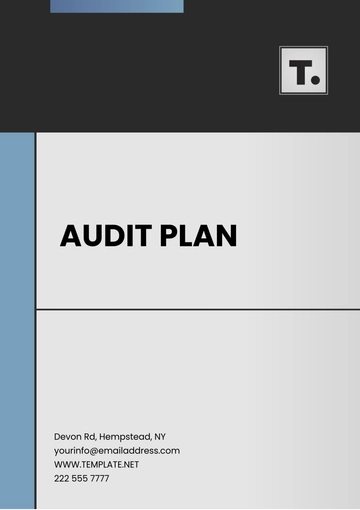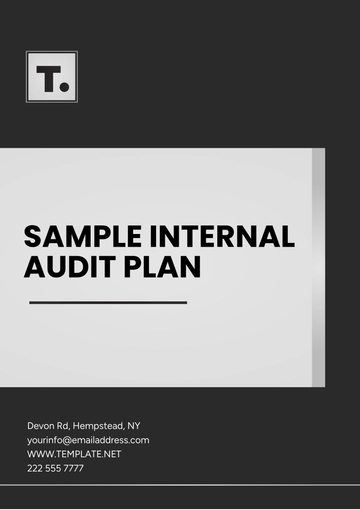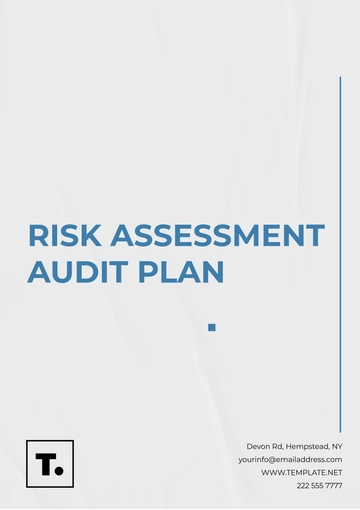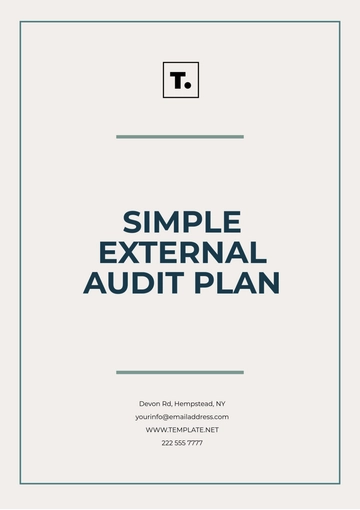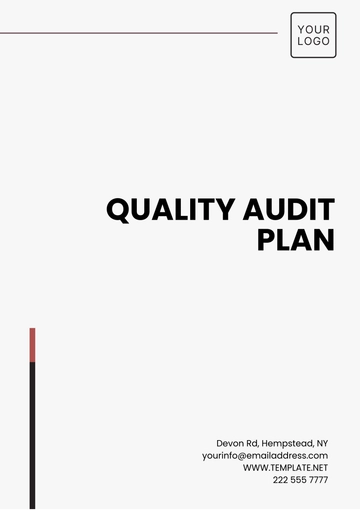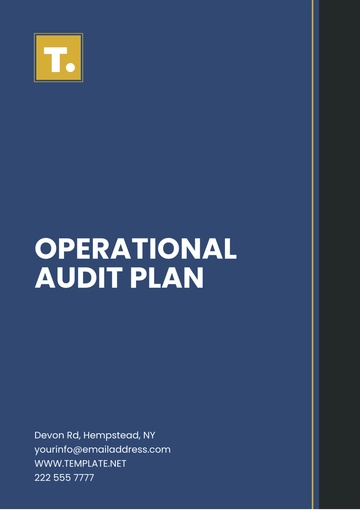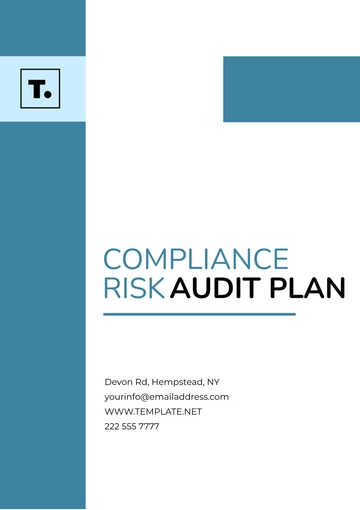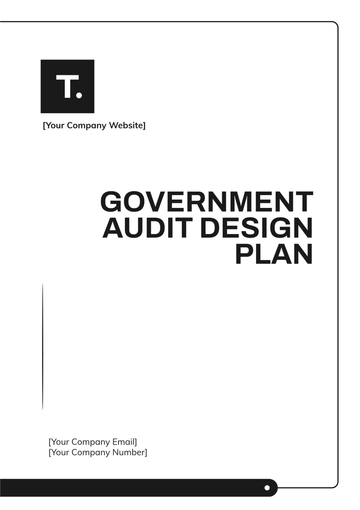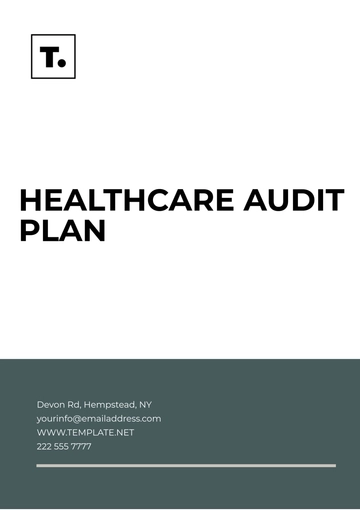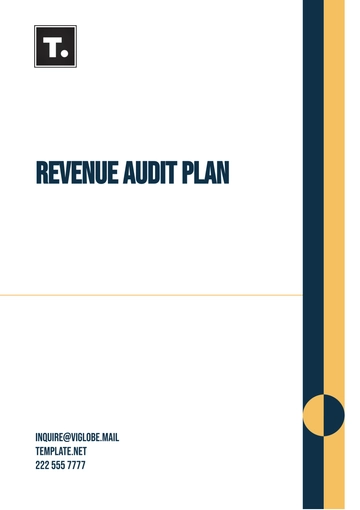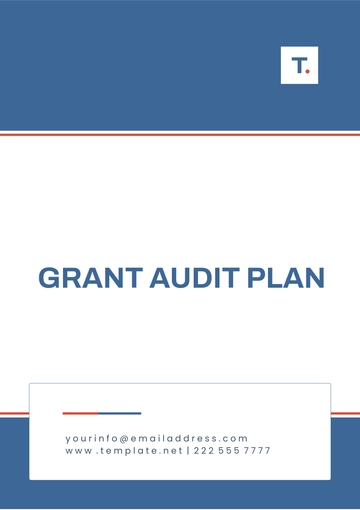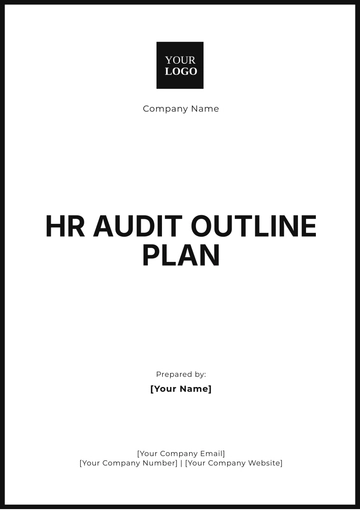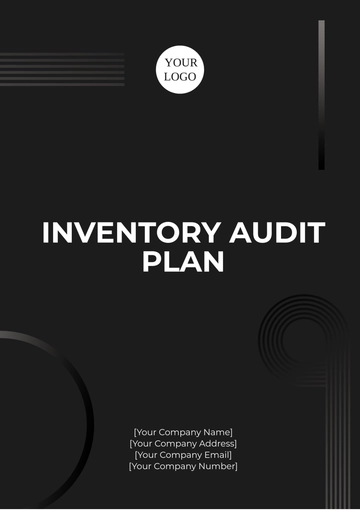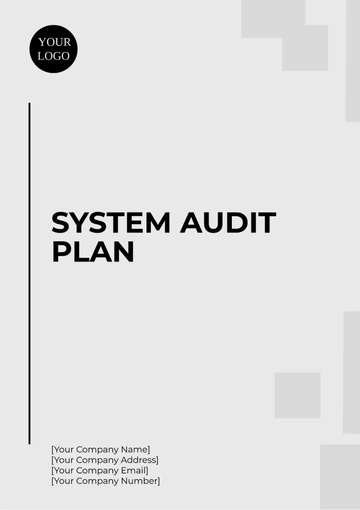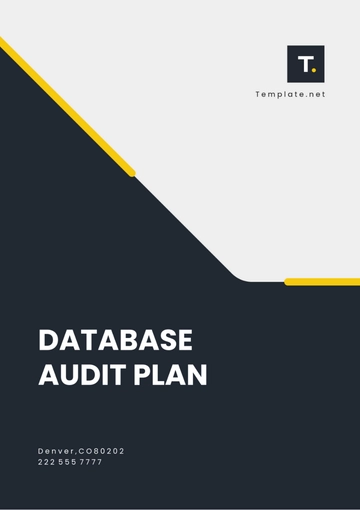Free Database Audit Plan
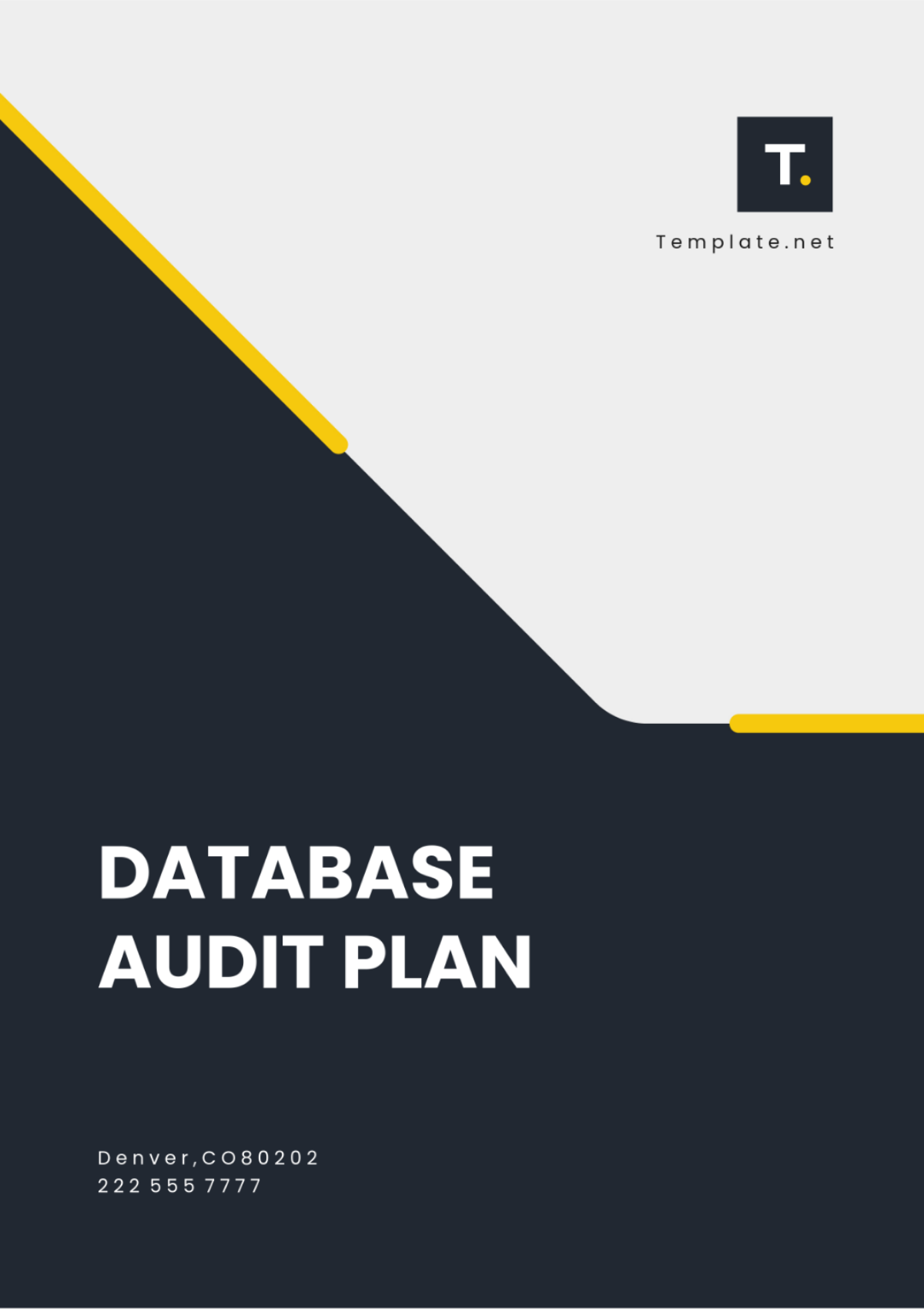
Prepared by: [Your Name]
Position: [Your Position]
Company Name: [Your Company Name]
Date: January 15, 2060
1. Introduction
This Database Audit Plan outlines the approach for auditing the database systems within [Your Company Name]. The purpose of the audit is to ensure compliance with internal policies and regulatory requirements, enhance data security, and improve the integrity of the database systems.
2. Audit Objectives
The objectives of this database audit include:
Compliance Verification: Ensure adherence to relevant data protection regulations (e.g., GDPR, HIPAA) and internal policies.
Data Integrity Assessment: Evaluate the accuracy and reliability of data stored within the database systems.
Security Evaluation: Identify vulnerabilities and assess the effectiveness of current security measures.
Performance Analysis: Analyze the performance of database systems to identify areas for optimization.
3. Scope of Audit
The scope of the audit will encompass the following areas:
Database Systems: All relational and non-relational databases, including:
MySQL for transactional data
PostgreSQL for analytical data
MongoDB for unstructured data storage
Data Access Controls: Review of user access permissions, roles, and authentication mechanisms.
Backup and Recovery Procedures: Evaluation of backup strategies, including frequency, retention policies, and recovery processes to ensure data availability and business continuity.
Incident Response Protocols: Assessment of protocols for handling data breaches and security incidents, including communication plans and escalation processes.
4. Audit Methodology
The audit will be conducted in the following phases:
Planning Phase (January 15 - February 15, 2060):
Define audit objectives and scope.
Identify stakeholders and schedule interviews.
Gather preliminary data on database architecture and user access.
Fieldwork Phase (February 16 - March 15, 2060):
Conduct interviews with database administrators and relevant personnel.
Perform system walkthroughs to understand database management practices.
Utilize automated tools to analyze data integrity and security.
Analysis Phase (March 16 - March 31, 2060):
Compile findings from fieldwork.
Assess compliance against regulations and internal standards.
Identify vulnerabilities and areas for improvement.
Reporting Phase (April 1 - April 15, 2060):
Prepare the audit report outlining findings, conclusions, and recommendations.
Present findings to management and relevant stakeholders.
Develop an action plan for addressing identified issues.
5. Resources Required
To successfully execute this audit, the following resources will be required:
Audit Team: A team of auditors, including:
Jordan Smith (Senior Database Administrator)
Sarah Thompson (IT Security Analyst)
Michael Lee (Compliance Officer)
Tools and Software: Access to auditing tools such as:
SQL Vulnerability Assessment tools
Data integrity checkers (e.g., Redgate SQL Toolbelt)
Performance monitoring tools (e.g., SolarWinds Database Performance Analyzer)
Access to Database Systems: Administrative access to all database systems included in the audit scope, including user permissions for relevant personnel.
6. Risk Assessment
The following risks have been identified concerning the audit:
Limited Access: Potential resistance from staff in providing access to sensitive data.
Data Integrity Issues: Pre-existing data integrity issues that may complicate the audit process.
Time Constraints: The possibility of insufficient time to conduct thorough testing due to project deadlines.
7. Follow-Up Procedures
Post-audit follow-up will be critical to ensure that identified issues are addressed:
Action Plan Review: Management will review and approve the action plan developed from audit findings.
Progress Monitoring: Regular check-ins will be scheduled to monitor the implementation of recommendations.
Follow-Up Audit: A follow-up audit will be scheduled six months after the initial audit to evaluate the effectiveness of corrective actions.
8. Conclusion
This Database Audit Plan serves as a framework for conducting a comprehensive audit of [Your Company Name]'s database systems. By adhering to this plan, we aim to enhance data integrity, security, and compliance while minimizing risks associated with database management.
- 100% Customizable, free editor
- Access 1 Million+ Templates, photo’s & graphics
- Download or share as a template
- Click and replace photos, graphics, text, backgrounds
- Resize, crop, AI write & more
- Access advanced editor
Manage your database audits efficiently with Template.net's Database Audit Plan Template. This customizable and editable template offers a structured guide for thorough database reviews. It’s fully editable in our Ai Editor Tool, allowing you to adjust the plan for optimal database management and compliance.
You may also like
- Finance Plan
- Construction Plan
- Sales Plan
- Development Plan
- Career Plan
- Budget Plan
- HR Plan
- Education Plan
- Transition Plan
- Work Plan
- Training Plan
- Communication Plan
- Operation Plan
- Health And Safety Plan
- Strategy Plan
- Professional Development Plan
- Advertising Plan
- Risk Management Plan
- Restaurant Plan
- School Plan
- Nursing Home Patient Care Plan
- Nursing Care Plan
- Plan Event
- Startup Plan
- Social Media Plan
- Staffing Plan
- Annual Plan
- Content Plan
- Payment Plan
- Implementation Plan
- Hotel Plan
- Workout Plan
- Accounting Plan
- Campaign Plan
- Essay Plan
- 30 60 90 Day Plan
- Research Plan
- Recruitment Plan
- 90 Day Plan
- Quarterly Plan
- Emergency Plan
- 5 Year Plan
- Gym Plan
- Personal Plan
- IT and Software Plan
- Treatment Plan
- Real Estate Plan
- Law Firm Plan
- Healthcare Plan
- Improvement Plan
- Media Plan
- 5 Year Business Plan
- Learning Plan
- Marketing Campaign Plan
- Travel Agency Plan
- Cleaning Services Plan
- Interior Design Plan
- Performance Plan
- PR Plan
- Birth Plan
- Life Plan
- SEO Plan
- Disaster Recovery Plan
- Continuity Plan
- Launch Plan
- Legal Plan
- Behavior Plan
- Performance Improvement Plan
- Salon Plan
- Security Plan
- Security Management Plan
- Employee Development Plan
- Quality Plan
- Service Improvement Plan
- Growth Plan
- Incident Response Plan
- Basketball Plan
- Emergency Action Plan
- Product Launch Plan
- Spa Plan
- Employee Training Plan
- Data Analysis Plan
- Employee Action Plan
- Territory Plan
- Audit Plan
- Classroom Plan
- Activity Plan
- Parenting Plan
- Care Plan
- Project Execution Plan
- Exercise Plan
- Internship Plan
- Software Development Plan
- Continuous Improvement Plan
- Leave Plan
- 90 Day Sales Plan
- Advertising Agency Plan
- Employee Transition Plan
- Smart Action Plan
- Workplace Safety Plan
- Behavior Change Plan
- Contingency Plan
- Continuity of Operations Plan
- Health Plan
- Quality Control Plan
- Self Plan
- Sports Development Plan
- Change Management Plan
- Ecommerce Plan
- Personal Financial Plan
- Process Improvement Plan
- 30-60-90 Day Sales Plan
- Crisis Management Plan
- Engagement Plan
- Execution Plan
- Pandemic Plan
- Quality Assurance Plan
- Service Continuity Plan
- Agile Project Plan
- Fundraising Plan
- Job Transition Plan
- Asset Maintenance Plan
- Maintenance Plan
- Software Test Plan
- Staff Training and Development Plan
- 3 Year Plan
- Brand Activation Plan
- Release Plan
- Resource Plan
- Risk Mitigation Plan
- Teacher Plan
- 30 60 90 Day Plan for New Manager
- Food Safety Plan
- Food Truck Plan
- Hiring Plan
- Quality Management Plan
- Wellness Plan
- Behavior Intervention Plan
- Bonus Plan
- Investment Plan
- Maternity Leave Plan
- Pandemic Response Plan
- Succession Planning
- Coaching Plan
- Configuration Management Plan
- Remote Work Plan
- Self Care Plan
- Teaching Plan
- 100-Day Plan
- HACCP Plan
- Student Plan
- Sustainability Plan
- 30 60 90 Day Plan for Interview
- Access Plan
- Site Specific Safety Plan
